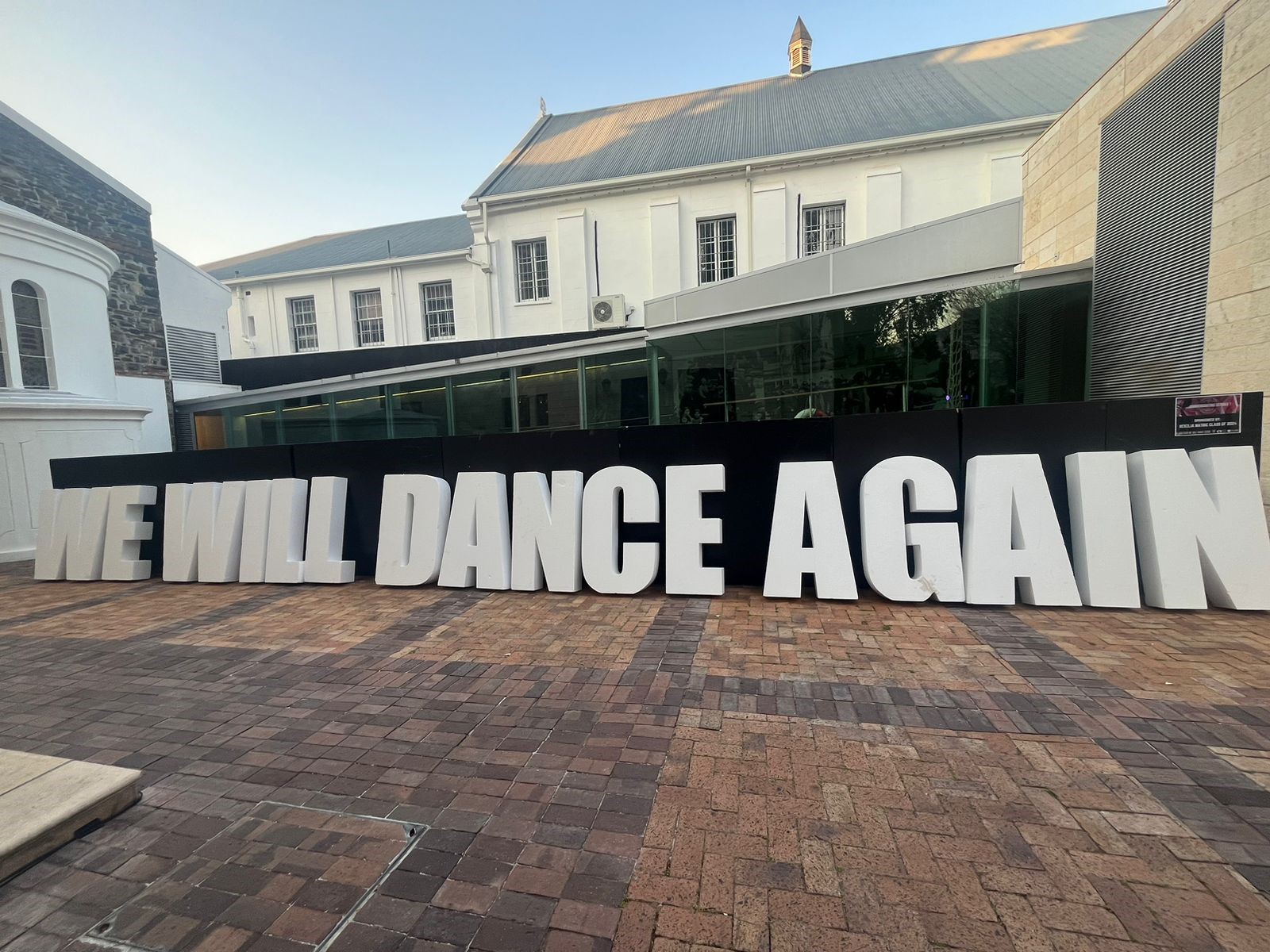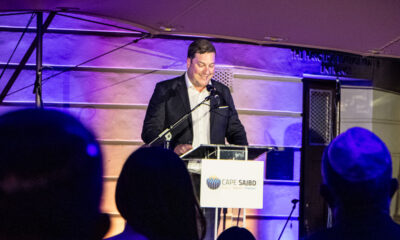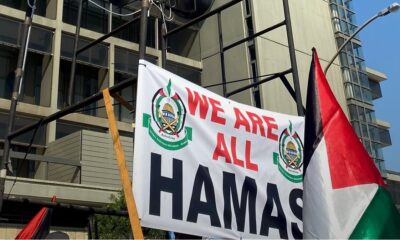
Community

‘Our hearts break as one’ – Cape Jewry commemorates
Cape Town Jewry, supported by allies and dignitaries, came out in numbers to attend a multifaceted memorial commemorating the lives lost and shattered on 7 October 2023. Amidst a strong police presence and roadblocks, participants calmly and safely entered a venue filled with interactive installations, allowing them to grieve, process, and unite a year after “Black Saturday”.
With yellow ribbons on their wrists and stickers marking 365 days on their chests, participants ranged from many youth movement members to the elderly. The atmosphere was calm, warm, peaceful, and mournful, gracefully celebrating Jewish and Zionist pride, unity, and strength. In a powerful display of Judaism as am echad, lev echad (one nation, one heart) Progressive Rabbi Greg Alexander and Orthodox Rabbi Osher Feldman came together to lead the audience in prayer.
Cape South African Jewish Board of Deputies Chairperson Adrienne Jacobson said, “South Africa has been the intersection of unprecedented challenges in the past year: the breakdown of our relationship with the ANC [African National Congress], which hasn’t even expressed a modicum of condolence; South Africa taking Israel to the International Court of Justice; and the rise of antisemitism – of seeing Jews as different to others and the Jewish state as different to other states. We have witnessed society holding Jews responsible for Israel’s actions, and we have fought gaslighting, rhetoric, and blame.”
Yet, “our Jewish heart beats as one”, she said. “Today, it pauses collectively and breaks as one. On 7 October, our world shifted on its axis, and we’re still grieving the loss and impact on our own sense of safety.” She thanked the “friends who have stood by us”, saying, “It means the world to us. You have proven that South Africa belongs to all who live in it, and the meaning of ubuntu. You have been a beacon of light in the darkness.” She ended by calling for an end to the loss of all life.
Music, integral to healing and community, took centre stage. Bring Them Home from Les Miserables was a haunting yet urgent call for the hostages to be released, while Eden Golan’s Hurricane/October Rain was sung with dignity and passion. Lu Yehi, to the tune of Let It Be, called for peace in the region, a wish that has been drowned by radicalism over the past year. Choni Goldman’s voice rang out with belief and hope as he sang Acheinu in merit of the return of the captives.
Keynote speaker Liora Ben Tsur told her family’s harrowing yet hopeful story of making their way to Israel from South Africa, building a life working the land, and the separate, tragic deaths of both of her parents. Her father was killed in a tractor accident, and her mother murdered by Hamas terrorists on Kibbutz Ein Hashlosha on 7 October, two days after Ben Tsur gave birth to her third child. (See more on page 8.)
South African Zionist Federation Cape Council Chairperson David Cohen said there were two moments in his life that shaped his Jewish identity: the assassination of Yitzhak Rabin, and 7 October. Both events warned of the dangers of sinat chinam (baseless hatred) among Jews, he said, and he called on the community to heal divisions and unite in a show of strength. “To honour their memory, we must stand as one people.”
In a recorded address, Israeli president Isaac Herzog said that “the passage of time should offer comfort and closure, but the earth still shakes. We’re still living in the loss until the captives come home.” He criticised the barbarism of Iran and its proxies, and said, “We haven’t abandoned our longing and aspirations for peace. We will overcome and rebuild, inspired by the beauty of everyone we lost.”
Jewish Agency Chairperson Doron Almog thanked the South African Jewish community for its generosity, support, and solidarity. “Your support embodies the spirit of mutual responsibility,” he said.
Youth from across different youth movements came together in a display of unity, proudly expressing their Zionist and Jewish identities with stoicism and grace.
Shlichim Maytal and Shlomo Goldberg recalled arriving in South Africa shortly before 7 October, Shlomo being called back to serve his country, and Maytal doing both their jobs. “This community became our family, and welcomed us at the most difficult time,” Maytal said.
“Judaism isn’t a religion of death,” Shlomo said. “Not one person who is fighting for Israel values death.” He said he had lost many friends on the frontlines, “who died so we can live. At their funerals, I celebrated their lives. Appreciate the people you have – don’t wait to tell them how you feel. Judaism is about happiness, friendship, love, and the future. No matter how much it hurts, we will move forward.”










